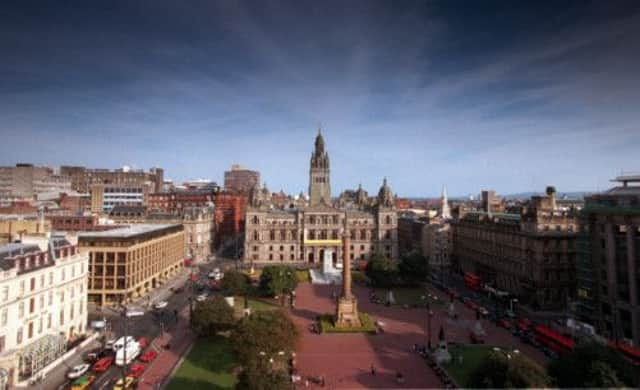Scottish independence: Report on Glasgow autonomy


The report, by the council’s chief executive George Black, said the UK government had already handed greater powers to English city authorities “in recognition of their pivotal role in supporting economic growth”, which was in contrast to Scotland “where there has been increasing centralisation of powers to the Scottish Government”.
The report said that there was a “significant risk that Glasgow will lose competitive advantage, skills, jobs and businesses to English cities that benefit from ‘City Deals’ in the absence of such an approach in Scotland”.
Advertisement
Hide AdAdvertisement
Hide AdCity Deals give cities powers to make decisions on finance and infrastructure as they see fit. Birmingham, Bristol, Manchester, Leeds, Liverpool and Sheffield all benefit from self-sustaining investment funds to spend on local priority projects, aimed at reducing dependence on central government grants.
The report recommendeds the council seeks assurances from the Scottish Government that if next year’s referendum brings a Yes vote, Glasgow should have “at least the same or greater powers as English cities and greater subsidiarity given its significance as Scotland’s largest city”.
A spokesman for Cosla, the umbrella body for Scottish local authorities, said that while it could not speculate on a post-referendum situation, Glasgow council’s report “fits perfectly with Cosla’s vision for greater powers for all councils and strengthening local democracy in Scotland as a whole”.
Glasgow’s report also sets out concerns the council has about the impact of independence on jobs or growth in the city.
Acknowledging there may be “potential areas of growth”, it said the absence of detailed plans from the Scottish Government meant it was still not possible to quantify the likely effect.
Questions on how any new Scottish benefits system would be run were also highlighted.
The report said the uncertainty created by the referendum was already threatening the city’s major building programme – it was refused loans by two English local authorities in the past six months. When the transactions, understood to be worth £10 million, were turned down, the council had to source them from other lenders.
Graeme Hendry, SNP group leader on Glasgow City Council, said: “It’s interesting that, despite [the report’s] negative tone, it acknowledges there would be benefits for Glasgow, in terms of Scotland gaining control over welfare and migration in particular. Only with independence will we have a chance to enshrine the role of local government in our constitution and build its ability.”
Advertisement
Hide AdAdvertisement
Hide AdDeputy First Minister Nicola Sturgeon said: “The only prospect for people in Glasgow to have a real say in welfare benefits in the city is if Scotland has the decision-making powers that come with independence.”